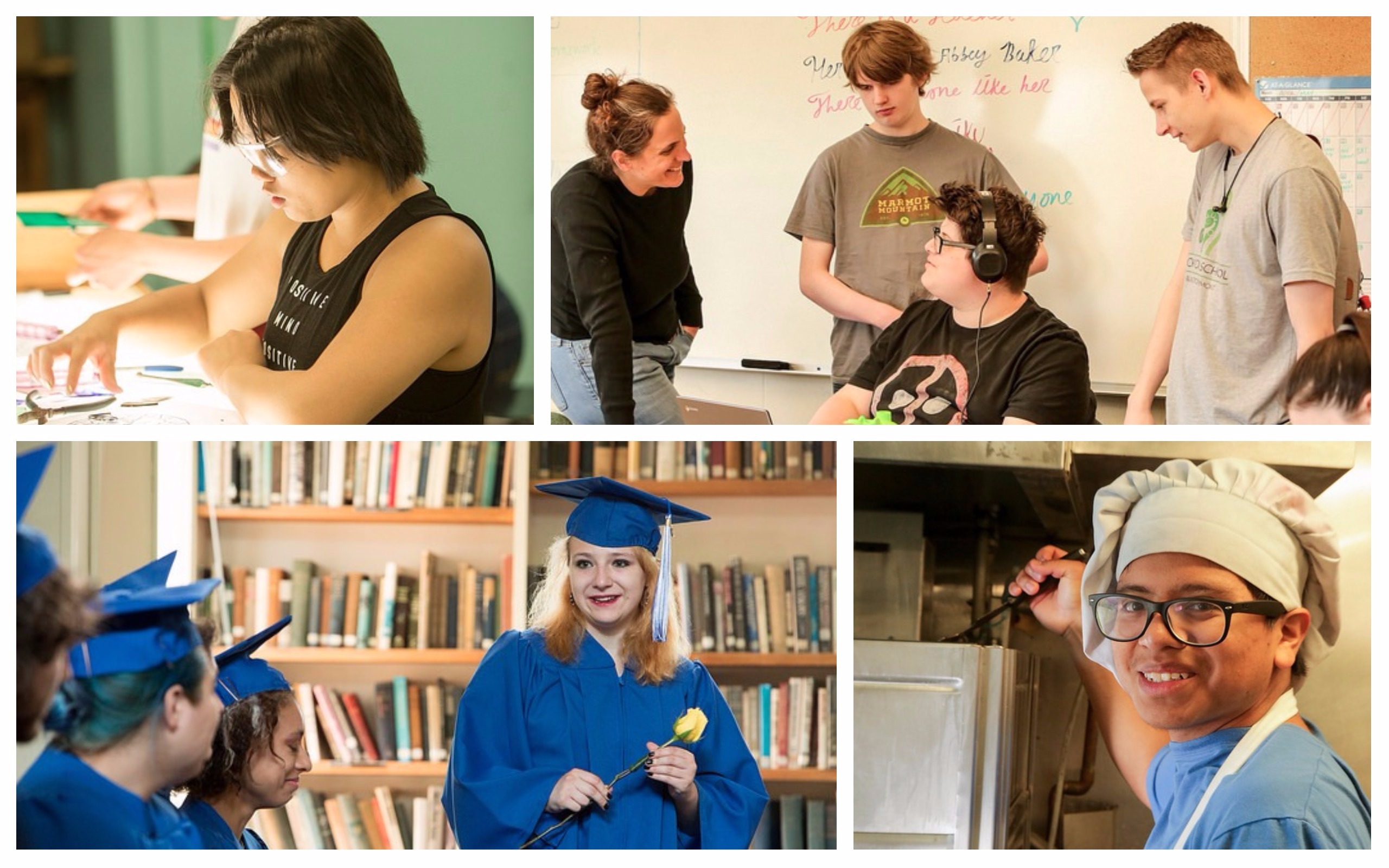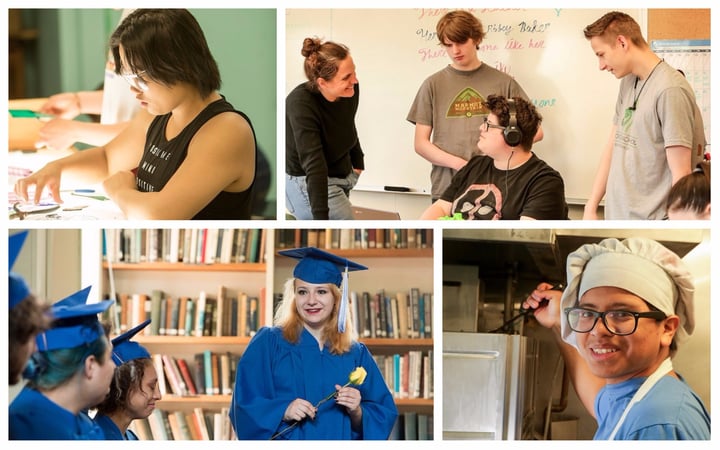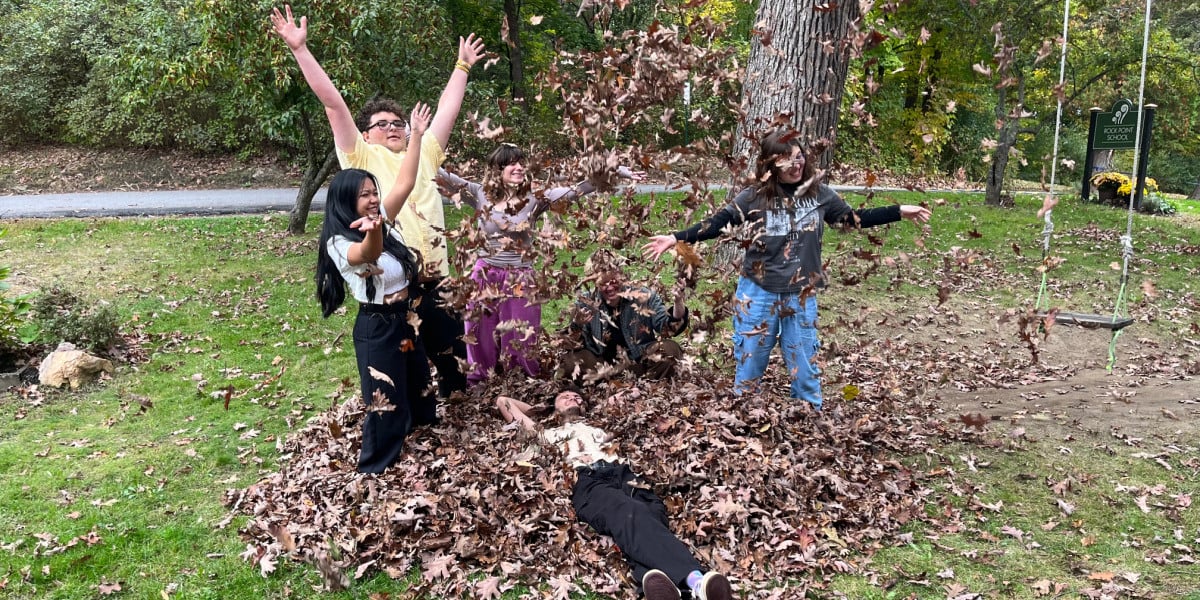Small is Beautiful: Education as if Every Student Really Mattered
In the small, beautiful, lakeside community of Burlington, there are both the advantages of a city — public transportation, rich cultural...


At graduation, our long-time History teacher, Gus Buchanan, has a sweet tradition of reading from All I Really Need to Know I Learned in Kindergarten by Robert Fulghum. The line that usually gets us all to tear up a little, comes at the end of the first chapter, “And it’s still true, no matter how old you are - when you go out into the world, it is best to hold hands and stick together.” We hope that as our graduates leave, they keep that lesson in their heart, to look out for one another, and stay connected. Of course we also hope they have learned some tangible life skills to take with them when they move on.
But the value of certain skills is not always clear to every teenager. One refrain we hear from our students frequently throughout the school year is, “How is this going to help me in the real world?” First, I usually tell them that this is their real world, right now. While our school may be a small, supportive community, we work to make it a place where students practice and use skills that will help them be successful as they move on to college or the workplace. Those skills are not always obvious to students and the question of “What good will this do me in the future?” is a good one. As educators, we continually examine what we do to ensure that what we teach has value to our students as they go out into the world. So here are some lessons we hope our students carry with them into their future endeavors.
Homework can be the bane of a high school student’s life and the benefit of homework is often hotly debated with parents and in education circles. As educators, we aim to assign homework that helps students practice and retain the skills we want them to learn. Our goal is to assign a manageable amount of meaningful work each day to help students build their independent work skills, as well as review material taught in class to help their retention. This also means that homework is not the same for each student in the class. The skills that one student needs to practice may not be the same for everyone and their homework assignments should reflect that. “Busy work” is something to be avoided at all times - our students are busy enough!
Because we believe in the value of the work we assign, students are required to complete it. We have heard many students say “just give me a zero” when they want to avoid work they find challenging or are frustrated by assignments. Our task here is to help students complete their work or demonstrate their comprehension of the assignment before moving on, which may mean adapting the assignment but does not mean avoiding the responsibility.
Another part of “doing your homework” is learning to manage time. Whether it’s learning how to use a planner, prioritize tasks, or stay focused on a task, students sometimes need explicit instruction on how to manage time, as well as the chance to practice their time management skills during unstructured time. There are many distractions available at their fingertips, such as YouTube or other social media, and helping students develop time management skills not only means they will complete their homework efficiently, but also will help them learn how to be focused in the workplace.
In post-high school life, “doing your homework” still has value. Whether it is doing the reading before your college lecture, reading the apartment lease agreement carefully before you sign it, or showing up for your job interview prepared with information about the company and questions you want to ask, it is always important to prepare for what is coming.
For many of our students, getting up and going to class is a battle. Anxiety, depression, exhaustion, social pressure, and other complications have kept some of them from attending classes regularly and succeeding in school in the past. When students are struggling to get up for school, we spend a lot of time coaching them, and working on their coping skills to get them to class. Once students get into the regular habit of attendance, many other things begin to come easier to them - completing assignments, engaging in class discussion, and socializing with peers.
The obvious advantages of showing up in life are not lost on our students, but we want to prepare them for the strong temptation to skip lectures or optional events in college. Getting in the habit of attending class, even when you feel you have a good understanding of the material, is something we emphasize with all our students. Showing up also means showing up for office hours, meeting with your teachers, and getting help.
One of the major skills we emphasize with our students is good communication. At a boarding school, that may mean helping students work through issues with their roommate or having an open discussion with their girlfriend. We model clear, honest communication with our students and facilitate that kind of communication between students when needed. Teaching students how to listen to each other as well as speak up for themselves is as important in social settings as it is in the academic realm.
Academically, many students need to learn how to be a self-advocate. That doesn’t mean telling your teacher “I can’t do this,” but rather, “I struggle with this kind of work. Can you help me?” or “This kind of assignment is hard for me. Can I demonstrate what I know a different way?” We start by having our teachers initiate these conversations with students, but as students grow more confident and have a better understanding of their learning styles, we encourage them to seek out their teachers. As one of our alumni recently said after graduating from the University of North Carolina, “In college, if I don’t know something and need help, I ask. This sounds simple, but I can’t tell you how many of my peers have never sought out their professors outside of class … I have found that I am far more capable of dealing with the stress of school, than my peers, because of the skills I learned at Rock Point.”
Everything from helping students learn to write emails to helping them communicate with their team members on the basketball court can transfer to college and the workplace. Good communication skills are one of the main “soft skills” employers are looking for, so teaching students to communicate clearly, respectfully, and openly can help them be successful in the workplace.
These are just a few of the many skills students should learn in high school that will help them in the “real world.” As our students launch into their life beyond high school, we hope they have retained these lessons, remember to hold hands and stick together, and maybe they learned how to do their own laundry, too.

In the small, beautiful, lakeside community of Burlington, there are both the advantages of a city — public transportation, rich cultural...

Adolescence is a time of enormous growth and self-discovery. As teens navigate who they are, how they fit in, and what matters to them, they need...

“But what do you do in the winter?” is a question that I hear frequently from people outside Vermont when they learn about our small boarding and day...